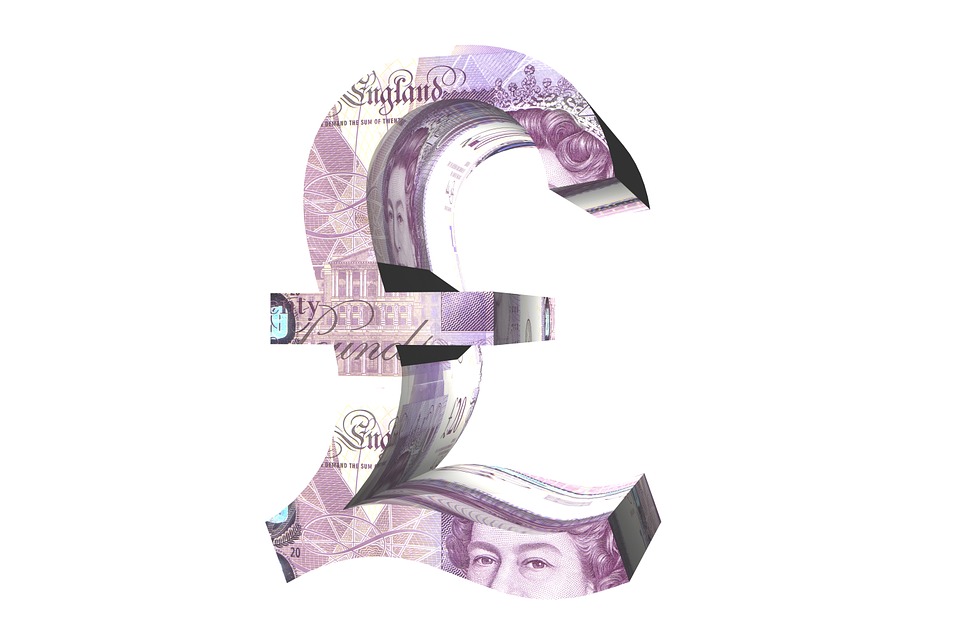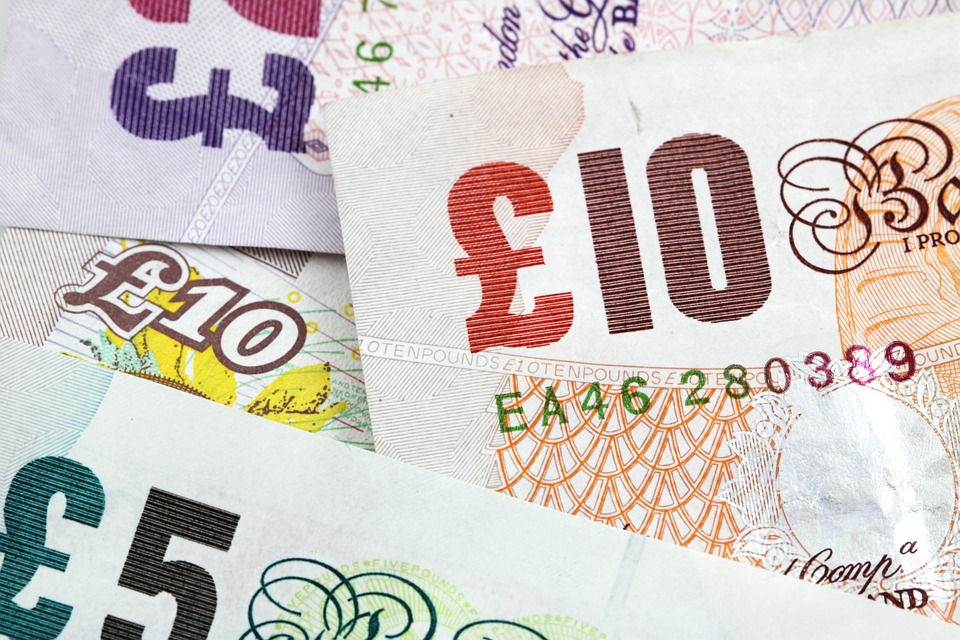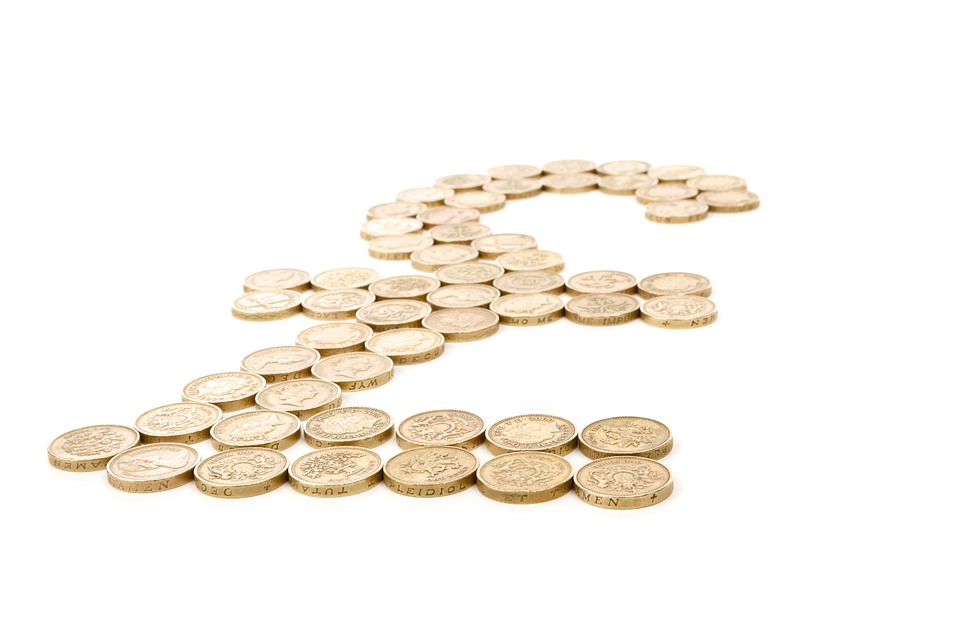The British Pound is under pressure in mid-week trade with foreign exchange markets digesting a speech by Bank of England Governor Mark Carney that prompted markets to rapidly raise expectations for an interest rate cut over coming months.
Carney told an audience in Bournemouth late on Tuesday that the “stance of monetary policy is tighter than intended” owing to a disconnect between market expectations of interest rates and the Bank of England’s guidance on where they believe interest rate expectations should actually lie.
Carney’s added that downside risks to the economy have increased recently owing to global trade tensions and markets interpreted the comments as reason to increase expectations for an interest rate cut in coming months.
Currencies tend to fall when their central bank communicates the prospect of future interest rate cuts.
Carney said the global trade tensions have caused a “sea change” in investors’ outlook for the world economy that “suggests a shock to U.S. and Chinese business confidence and investment analogous to what has happened in the UK”.
“The latest actions raise the possibility that trade tensions could be far more pervasive, persistent and damaging than previously expected. The rationales for action are broadening,” he said in the speech.
The key phrase here being “the rationales for action are broadening”: markets quickly ramped up expectations for an interest rate cut at the bank on this comment. Money markets now assign a 57% probability of a 0.25% interest rate cut by the Bank in December, up from 41% ahead of Carney’s speech.
This repricing in expectations sent Sterling lower.
The intervention by the Governor means what had already been a poor day for Sterling just got worse leaving the currency trading near multi-week lows against the Dollar and Euro at the mid-week period.
“Things have gone from bad to worse for the Pound. After being knocked by a poor construction PMI earlier in the day, sterling slumped to hit a new session low moments ago in reaction to a speech by Bank of England Governor Mark Carney,” says Fawad Razaqzada, a Market Analyst with Forex.com. “Carney said the BoE expects economic growth in the second half of the year to be considerably weaker and that it will re-assess Brexit and trade tension in August.”
The speech appears to be a clear move by the Bank of England Governor to massage market expectations towards expecting a more sombre assessment at their next major policy update in August with the view to potentially laying the path to another interest rate cut.
However, we are told by one analyst this particular sell-off in Sterling might not be warranted as some interpreted the Governor’s speech as being more balanced than the market have judged.
“Carney did hint 2-way risks to Bank policy rate (explicitly says need for rate hikes if smooth Brexit). Sure nobody can see smooth Brexit / easing global trade tensions right now but no need to chase UK rates even lower (50% odds of 2019 cut priced). GBP sell-off overreaction,” says Viraj Patel, an analyst with Arkera.
Carney said the Bank of England was working on the assumption that both candidates in the leadership race to replace Prime Minister Theresa May would achieve their stated aim of reaching a deal with the EU.
If that happened, the outlook for Britain’s economy could improve quickly, which is why the Bank has not changed its main message about the outlook for rates: that gradual interest rate rises would be needed in the future.
“In the UK, the combination of the relatively strong initial conditions – including a tight labour market and inflation at target – and the prospect of greater clarity emerging in the near term regarding the UK and EU’s future relationship argues for a focus on the medium-term inflation dynamics,” Carney said.
The British Pound had already been under pressure against the Euro, U.S. Dollar and other major currencies earlier on Tuesday, July 02 as foreign exchange markets continue to express caution over the prospects of a disruptive Brexit and heightened prospects for a General Election before 2019 is out.
Adding downward pressure was a rude surprise in the form of Construction PMI for June that showed the sector has entered its deepest slowdown in ten years: the reading of 43.1 is sharply down on the previous month’s reading of 48.6, and well below analyst expectations for a reading of 49.3 to be delivered.
The data only adds to market concerns that the UK economy is stalling at a critical period for the country’s politic future. The economy has long been a bright spot for the Pound, underpinning it amidst chronic political uncertainties. We wonder what might happen to the currency now that the economy is looking less reliable.
We continue to maintain a view that currency markets are primarily focussed on the Brexit strategies of the two candidates to replace Prime Minister Theresa May in late July, and we hear today that front-runner Boris Johnson will make an offer to the European Union over post-Brexit free trade, but if it rejects that gambit then Britain will leave the bloc without a deal on October 31.
“With Boris, what he’s actually said clearly is: ‘We’re not going to go back and renegotiate’,” Iain Duncan Smith, Johnson’s campaign chairman, told Sky News.
“What we’re going to do is we will put a different offer down and say to them: ‘Look – we want to get to free trade. Now we can either start talking about that now if you are serious and you want to have a process that means we don’t end up … with tariffs etcetera after the 31st – if that’s what you want, the EU, then we are prepared to talk,” Duncan Smith said.
“But if all you are interested in doing is saying: ‘All you can have is this deal’, then the answer is: we will be prepared to leave on the 31st,” says Duncan Smith.
The developments will only further embed growing expectations for a ‘no deal’ into the value of Sterling we believe.
“A hard Brexit or the prospect of a new election is likely to weaken the GBP further, while a controlled withdrawal or a second referendum is likely to reduce the risk premium on the GBP and strengthen it,” says Dr Richard Falkenhäll, Senior Currency Strategist with SEB.
Merkel Will Talk: Hunt
Jeremy Hunt, who is fighting Johnson for the top job, has meanwhile said German Chancellor Angela Merkel will be willing to look at proposals for a revised Brexit deal.
“When you talk to those people … they also say that if a new prime minister comes forward with new proposals that are sensible of course they will look at the package,” Hunt told Sky News. “I have had a conversation with Angela Merkel. (She said) of course we will look at any proposals made by the new UK prime minister, because she wants to solve this problem.”
Hunt’s view on a potential willingness by the EU to look at the proposals of the next Prime Minister does offer some hope that a deal, of sorts can be done.
Of course EU leaders and officials have lined up over recent weeks to say there is only one deal on the table, and that is the current Withdrawal Agreement, and that it cannot be reopened for fresh negotiations.
We do however wonder if apparent EU intransigence on the matter will be permanent when faced with a Prime Minister who decidedly commits to a ‘no deal’ Brexit.
Hunt, who has long been seen as the ‘softer’ of the two candidates on Brexit is meanwhile appearing to harden his stance, saying that unless the EU budge by the end of September he will commit fully to a ‘no deal’ Brexit.
Johnson has long been of the opinion that a ‘no deal’ should be pursued if no improved deal with the EU can be found and has this week sought to downplay the negative impact of a potential ‘no deal’ Brexit.
We remain of the view that foreign exchange markets will continue to place great emphasis on Johnson’s intentions concerning Brexit and the strategy he intends to pursue.
“His “do or die” pledge to leave the EU on the 31st October has heightened ‘No Deal’ Brexit fears. We continue to believe a General Election or second referendum will be required to break the deadlock if parliament votes to prevent a ‘No Deal’ Brexit. We believe there is scope for further Pound weakness heading into the autumn,” says Derek Halpenny, Head of FX Research at MUFG in London.
Johnson said on Monday the impact of leaving the European Union without a deal would be “very, very small”, and added that he had a very carefully costed programme of spending plans.
“There is as you know about 26 billion quids worth of headroom. The money is there,” Johnson told reporters when asked about his spending proposals.
“We also think there is room to make some sensible tax cuts as well and we will be doing that too.”
Analyst sees Further Declines for Sterling against the Euro Ahead
Foreign exchange analyst Trevor Charsley with AFEX – a currency brokerage based in London – says he believes the Pound will continue to “staircase” lower against the Euro for the foreseeable future.
“For now at least the market here can continue to “stair-case” directly lower first/next instead and despite initial buying interest at 1.1100 a window of opportunity thus remains open to examine the psychological 1.1000 in coming sessions, Charsley says in a weekly briefing note to clients.
The Pound-to-Euro exchange rate has been under pressure since early June, when it was quoted as high as 1.17, and is now looking to be stuck in a range below 1.12 with a negative bias being in place.
Pound Shifting Negative Against the Dollar
The Pound has been tracking sideways against the U.S. Dollar since late May: bordered to the top by the 1.2750 area and to the bottom by 1.25-1.2550.
It appears that we are witnessing another impulse lower in the range.
“A closing break below 1.2650 has put a negative bias back into the recent phase of consolidation again,” says Richard Perry, a market analyst with Hantec Markets. “Momentum indicators are drifting lower, with the RSI into the low 40s, Stochastics lower and MACD lines plateauing, but these are more of a negative bias rather than precipitous bearishness.”
“Losing 1.2650 effectively opens the recent low at 1.2505,” adds Perry.
Written by Gary Howes
Source: Pound Sterling Live






